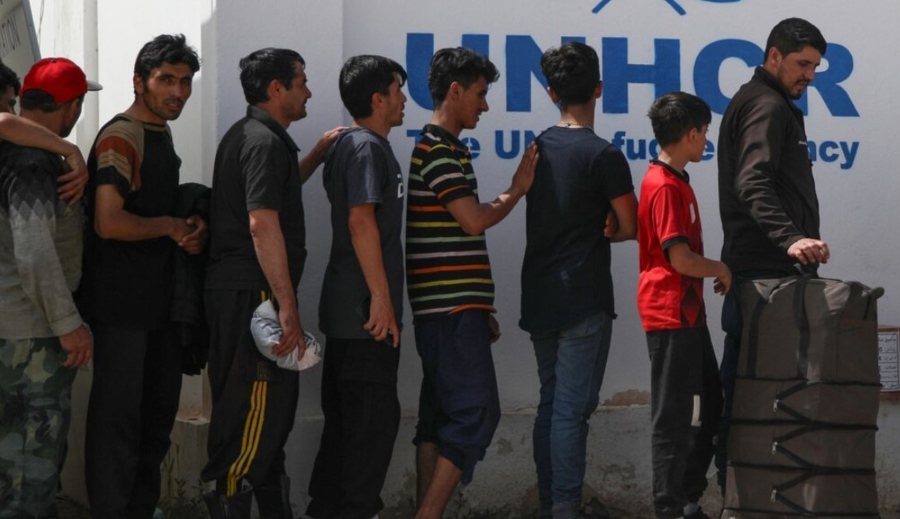
More than 72,000 deaths and disappearances have been documented along migration routes around the world over the past decade, the majority in crisis-affected countries, the United Nations said on Tuesday.
Last year marked the highest number of migrant deaths ever recorded, with at least 8,938 people losing their lives along migration routes, according to the International Organization for Migration (IOM).
"These figures are a tragic reminder that people risk their lives when insecurity, lack of opportunities and other pressures leave them without safe or sustainable choices in their home country," said IOM Director Amy Pope.
The UN agency's report found that nearly three-quarters of all migrant deaths and disappearances recorded globally since 2014 occurred as people were fleeing insecurity, conflict, disasters and other humanitarian crises.
One in four were “from countries affected by humanitarian crises, with thousands of deaths of Afghans, Rohingya and Syrians documented along migration routes around the world,” the IOM’s Missing Migrants Report said.
The report highlights that more than 52,000 people lost their lives while trying to flee one of the 40 countries in the world where the UN has a crisis response plan or humanitarian action plan.
Pope called for international investment "to create stability and opportunity within communities, so that migration is a choice, not a necessity."
"And when staying [in the homeland] is no longer possible, we must work together to enable safe, legal, and orderly pathways that protect lives," she said.
The Central Mediterranean remains the deadliest migration route in the world, with nearly 25,000 people lost at sea over the past decade, the IOM said.
More than 12,000 of them have been lost at sea after setting off from war-torn Libya, while countless others have disappeared while transiting across the Sahara Desert, according to the report.
More than 5,000 people have lost their lives while trying to flee crisis-torn Afghanistan over the past decade, many of them after the Taliban returned to power in 2021.
And more than 3,100 members of the persecuted Rohingya minority from Myanmar have died during this period, many of them in shipwrecks or while crossing to Bangladesh.
"Too often, migrants are forgotten," warned Julia Black, coordinator of IOM's Missing Migrants Project and author of the report.
"And due to the lack of data - especially in war zones and disaster-stricken regions - the real number of victims is likely to be much higher than we have recorded," she said./ REL (A2 Televizion)











